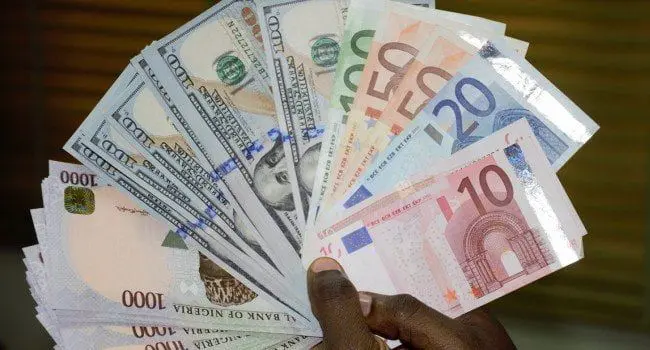
Naira Stays Resilient at ₦1,530 to Dollar in Black Market on September 14, 2025
The Nigerian Naira maintained a fragile equilibrium against the US Dollar in the parallel market today, with Aboki (black market) traders quoting a selling rate of ₦1,530 per dollar.
This marks a slight stabilization from earlier in the week, as currency dealers in key hubs like Lagos, Abuja, and Port Harcourt report consistent demand for foreign exchange amid ongoing economic headwinds.
Trending Now!!:
According to real-time updates from Bureau De Change operators and parallel market monitors, the buying rate hovered around ₦1,515, reflecting minimal volatility on a Sunday when trading volumes are typically subdued.
For context, exchanging $1,000 would fetch approximately ₦1,530,000 for sellers, underscoring the Naira’s persistent depreciation since the start of the year, where it has lost over 20% of its value against the greenback.
The rate’s steadiness persists despite broader pressures, including Nigeria’s heavy reliance on oil exports, caution among foreign investors, and inflationary strains exacerbated by global commodity fluctuations.
Official Central Bank of Nigeria (CBN) interventions have aimed to bridge the gap between official and parallel rates, but black market premiums remain elevated, often 10-15% above interbank quotes.
.
| Currency Pair | Black Market Buy Rate (₦) | Black Market Sell Rate (₦) | Change from Sept 13 |
|---|---|---|---|
| USD/NGN | 1,515 | 1,530 | Stable |
| EUR/NGN | 1,750 | 1,790 | +0.5% |
| GBP/NGN | 2,060 | 2,110 | Stable |
Economists attribute the current plateau to seasonal factors, including reduced dollar inflows during the weekend and anticipation of upcoming CBN policy announcements.
However, analysts warn that without sustained foreign reserves buildup—currently hovering around $35 billion—the Naira could face renewed downward pressure in the coming weeks.
“While today’s rates offer a brief respite for importers and travelers, the underlying fundamentals remain challenging,” said Dr. Aisha Bello, a currency analyst at Lagos-based firm EconInsights.
“Sustained stability will depend on diversification efforts beyond oil and tighter fiscal controls.”
For those engaging in forex transactions, experts advise verifying rates with reputable dealers and avoiding large-volume trades to mitigate risks from potential scams in unregulated markets.
Official channels, such as CBN-approved BDCs, continue to recommend larger amounts, though premiums apply. As Nigeria navigates its economic recovery post-2024 reforms, all eyes remain on how these black market dynamics will influence inflation and consumer spending in the months ahead.
Updates on Aboki rates can fluctuate rapidly; check trusted platforms like TheCityCeleb for the latest.


